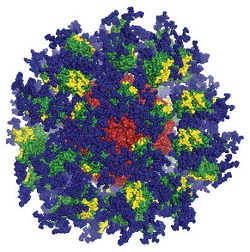l'RNA è altamente instabile rispetto alle proteine. Tuttavia, le proteine ricombinanti elicitano una risposta immune di più breve durata rispetto ad un mRNA. L'mRNA viene tradotto in proteina "a rilascio prolungato", e inoltre credo che la proteina prodotta dall'mRNA venga non solo rilasciata all'esterno della cellula ma anche esposta sulla superficie delle cellule in cui è entrato l'mRNA, mentre la proteina ricombinante iniettata per sè dura in circolo giusto il tempo di essere riconosciuta e neutralizzata. Questo mi lascia sperare che si riesca a dare "più tempo" al sistema immunitario per produrre tanti diversi tipi di anticorpi, sperando che alcuni siano davvero neutralizzanti.
Questa è l'unica spiegazione che riesco a darmi all'utilità di usare un vaccino ad mRNA piuttosto che a proteina ricombinante.
La storia della fusione con ENV o GAG o non ricordo cosa per me lascia il tempo che trova, perché anche la proteina ricombinante può essere prodotta in fusione con qualsiasi cosa. Ma ripeto, l'mRNA è più facile, perchè con una sequenza studiata/scritta e una PCR, lo fai in poco tempo e costi più contenuti.
Tuttavia la soggettiva risposta fisiologica di ogni persona (lo abbiamo visto col covid, c'è chi non lo lo prende più dopo il vaccino e chi lo prende lo stesso, chi sviluppa più IgG, chi meno) mi lascia pensare che questo tipo di vaccino probabilmente porrà le basi per ulteriori studi e tentativi, e che potrebbe quindi non essere un successo at first sight.
Magari sarà utile per riuscire ad isolare un maggior numero di anticorpi neutralizzanti, o magari per tentare una sorta di vaccinazione di massa per vedere se le infezioni scendano.
O magari la terapia antiretrovirale sarà sostituita da vaccinazioni e booster periodici, me lo auguro tanto, e non vedo l'ora di vedere i risultati dello studio per capire se tutto l'entusiasmo che sta generando questa notizia sui social e sui media sia frutto di una reale combinazione fortunata degli eventi o solo un abbaglio dovuto ad eccesso di ottimismo nel voler provare una "cosa nuova".
